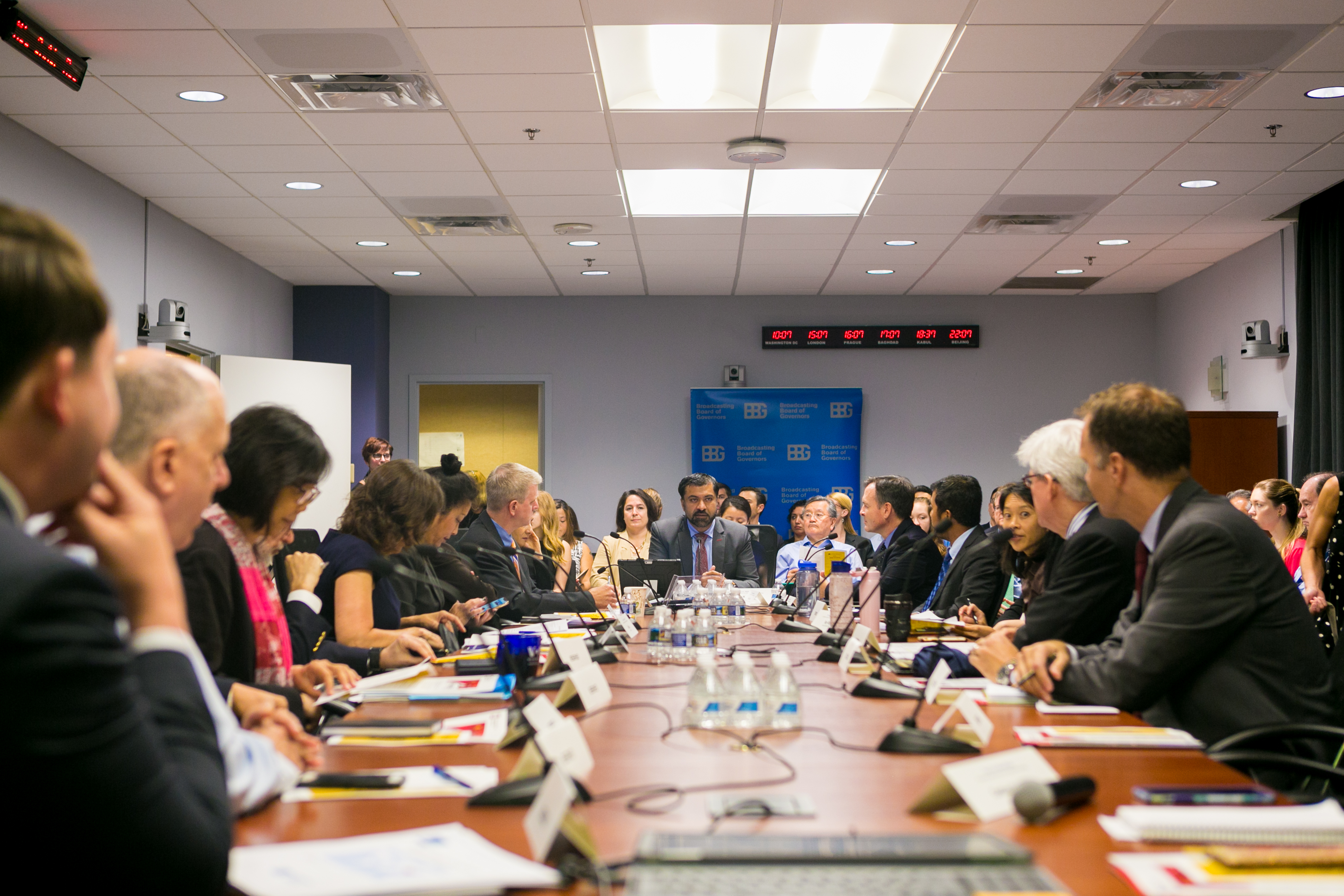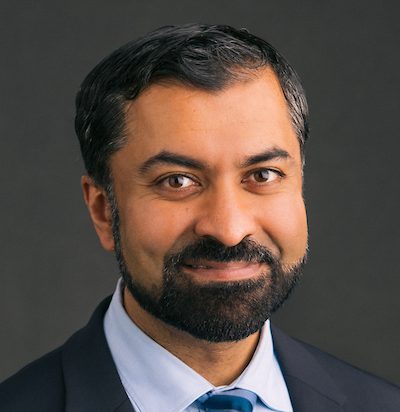Balancing the Voice of China: Why it matters and what we’re doing
China’s economic growth and global influence, as well as how the United States should respond, has been long and widely discussed in beltway circles. But today, there’s a pressing imperative in the global information space. As I wrote in a recent USA Today op-ed, China’s plans for a global media “Voice of China” super-network is a new reason for the world to pay attention. When coupled with China’s use of economic diplomacy and international investments across Asia, Africa and other regions, its control of traditional and new media, as well as innovative uses of technology to spread misinformation, become even more effective in selling its narrative and value system. Recently, FBI Director Christopher Wray described China as “the broadest, most challenging, most significant threat we face as a country.”
On July 25, BBG convened a panel to discuss China’s disinformation strategy and potential ways to counter this multifaceted threat. Policy experts, media specialists, interagency policy makers, and public diplomacy professionals reached a similar conclusion—late-rising, authoritarian China is challenging traditional liberal democracies in the media-space on a whole new scale. The Chinese Communist Party maintains tight control over broadcast, print media and new media. All television and radio broadcasters are state-run operations, and the internet is heavily censored and policed by a government-appointed task force. In addition to denying credentials for foreign journalists, the government routinely jams international broadcasting and blocks free internet access. It is only getting worse.
BBG and its networks have several lines of effort to balancing this, a few highlights:
Accurate reporting and appealing content. In addition to helping active news-seekers better understand the Chinese government’s activities inside China and around the world, BBG’s networks are working to uncover the impact of Chinese President Xi Jinping’s “Belt and Road Initiative” through a full-scale collaborative project: The Dragon’s Reach; Tracking China’s Economic Power Play. This project, which includes investigative reporting and unique stories from each of the BBG’s five networks, examines how a $1 trillion investment in roads, bridges, railways, ports and other infrastructure projects along trade routes that benefit China are transforming lives, reshaping landscapes and tilting the geopolitical balance.
Expanding audience and digital reach. We have new and promising research and survey data indicating that BBG networks are reaching audiences susceptible to Chinese disinformation, and a lot of them. U.S. international media reaches 6.2 percent of Chinese adults, including 40 million (3.8 percent) who consume VOA Mandarin on digital and broadcast platforms. These audiences have confidence in the news we put out—59 percent say VOA’s reporting is trustworthy; one third of VOA online content users are loyal users, visiting the site more than 50 times a year. And, they’re highly educated—52 percent of VOA users have a higher education, compared to 9 percent of the surveyed population. BBG is constantly evaluating new and more effective ways to deliver news to audiences on digital platforms.
Supporting marginalized communities. Right now, Radio Free Asia (RFA) is the only international broadcaster that airs programs in the Uyghur language. In a special project “How the west was won: the making of a police state in China’s new frontier” RFA lays out systematic efforts to turn the Xinjiang region into a police state, targeting and tracking Muslim Uyghurs who live there. RFA’s reporting has covered instances where authorities raid Uyghur households, restrict Islamic practices, force Uyghurs to get written permits to travel outside their villages and place curbs on the culture and language of the Uyghur people. Additionally, for the brave act of reporting on what is happening on the ground, RFA journalists’ families are being threatened, intimidated and, most audaciously, disappeared.
Of course, these are just a few examples of how BBG and U.S. global media are working in this space. We continue to look for new ways to get independent news and information to places that need it most because there is so much at stake.


